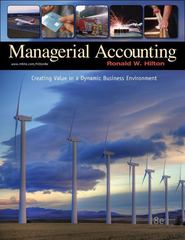Question
The electronic delivery and dissemination of financial information - or digital reporting - has developed significantly over the last few years. The first generation of
The electronic delivery and dissemination of financial information - or digital reporting - has developed significantly over the last few years. The first generation of digital reporting concentrated on the efficient dissemination of existing reporting formats over the Internet. The majority of these digital reports were Portable Document Format (PDF) and Hypertext Markup Language (HTML) versions of hard-copy corporate annual reports. The second generation of digital reporting aims to take this process a step further by standardising financial reporting using a digital reporting framework that will allow more analysis and interrogation of the underlying information across multiple platforms. One standard, Extensible Business Reporting Language (XBRL), has emerged as the leading technical standard to facilitate this standardisation. The XBRL framework is currently being developed by a consortium of organisations, including professional bodies, software houses, large listed companies in the US and Europe, and the Big 4 accountancy firms
A) List and explain THREE (3) audit implications of XBRL. (12 marks)
b) Describe the primary advantage of XBRL over traditional HTML as a means of on-line reporting of financial information to users. (10 marks)
c) Explain the FOUR (4) decision types, strategic planning, tactical planning, management control and operational control, by the four decision characteristics, time frame, scope, level of details, recurrence, and certainty.
Step by Step Solution
There are 3 Steps involved in it
Step: 1

Get Instant Access to Expert-Tailored Solutions
See step-by-step solutions with expert insights and AI powered tools for academic success
Step: 2

Step: 3

Ace Your Homework with AI
Get the answers you need in no time with our AI-driven, step-by-step assistance
Get Started


